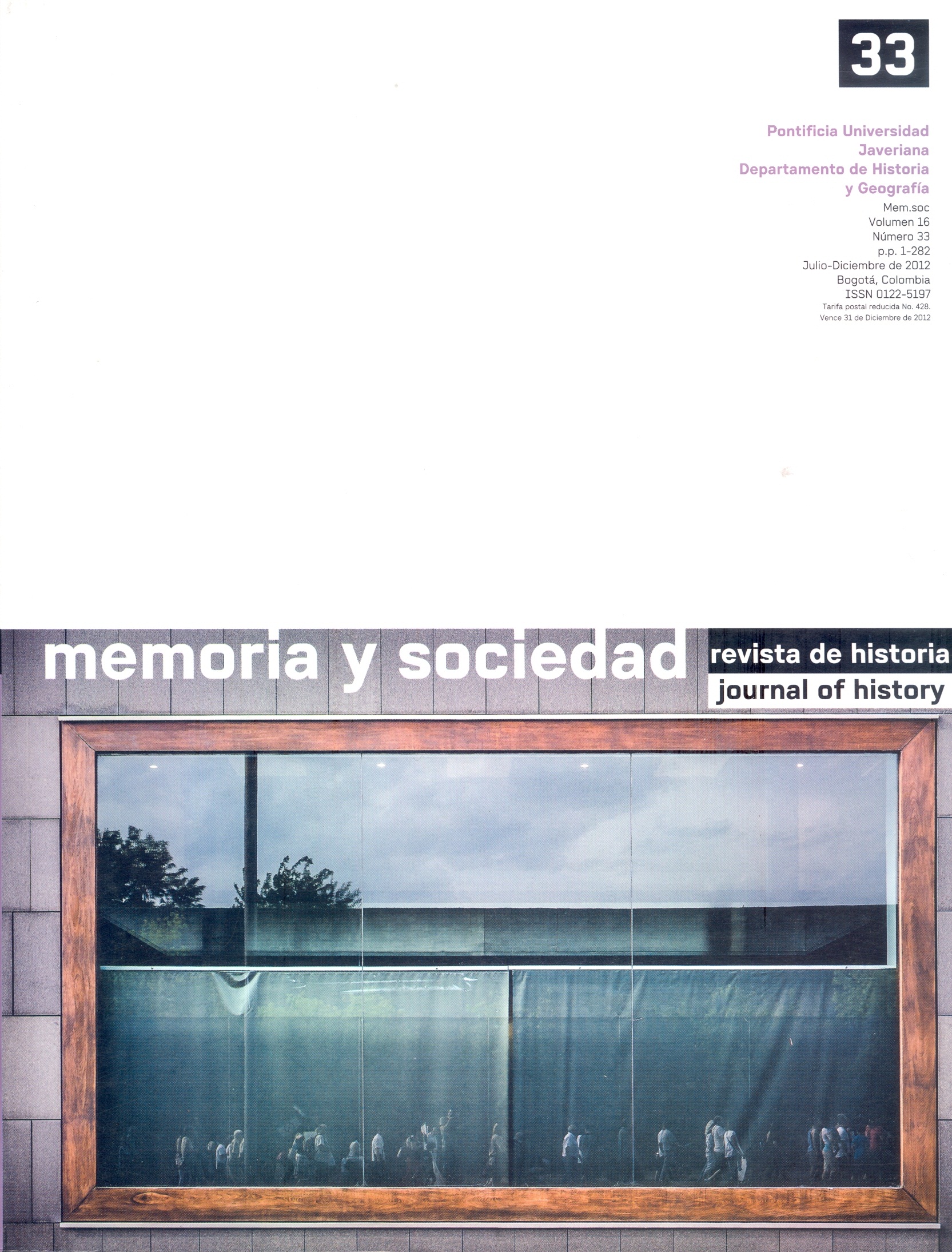Abstract
A strong politicization in the art field appeared in Colombia during the 1960s, and was forged between the struggle for the existence of a Political Art desired by a fragmented left and Art Institutions that each day became even more conservative. By these means the article inquires the meaning of the term Political Art in that particular moment that was appearing in the Country, and in order to do so undergoes a deep analysis of two articles written and published by two ideological opposed art critics: Marta Traba and Clemencia Lucena. Both forged theories about Political Art that were only similar in the usage of three words: Popular, Subversion and Revolution, all charged in connotations and propositions that differ from each other in a dramatic stance. These considerations where taken into account in order to question what a globalized world understands by Political Art, term that has been used so much that it has lost its original meaning, and that doesn’t acknowledge the history of an art created under a bipolar World order during the Cold War.
The journal Memoria y Sociedad is registered under a Creative Commons Attribution 4.0 International Public License. Thus, this work may be reproduced, distributed, and publicly shared in digital format, as long as the names of the authors and Pontificia Universidad Javeriana are acknowledged. Others are allowed to quote, adapt, transform, auto-archive, republish, and create based on this material, for any purpose (even commercial ones), provided the authorship is duly acknowledged, a link to the original work is provided, and it is specified if changes have been made. Pontificia Universidad Javeriana does not hold the rights of published works and the authors are solely responsible for the contents of their works; they keep the moral, intellectual, privacy, and publicity rights.
Approving the intervention of the work (review, copy-editing, translation, layout) and the following outreach, are granted through an use license and not through an assignment of rights. This means the journal and Pontificia Universidad Javeriana cannot be held responsible for any ethical malpractice by the authors. As a consequence of the protection granted by the use license, the journal is not required to publish recantations or modify information already published, unless the errata stems from the editorial management process. Publishing contents in this journal does not generate royalties for contributors.

